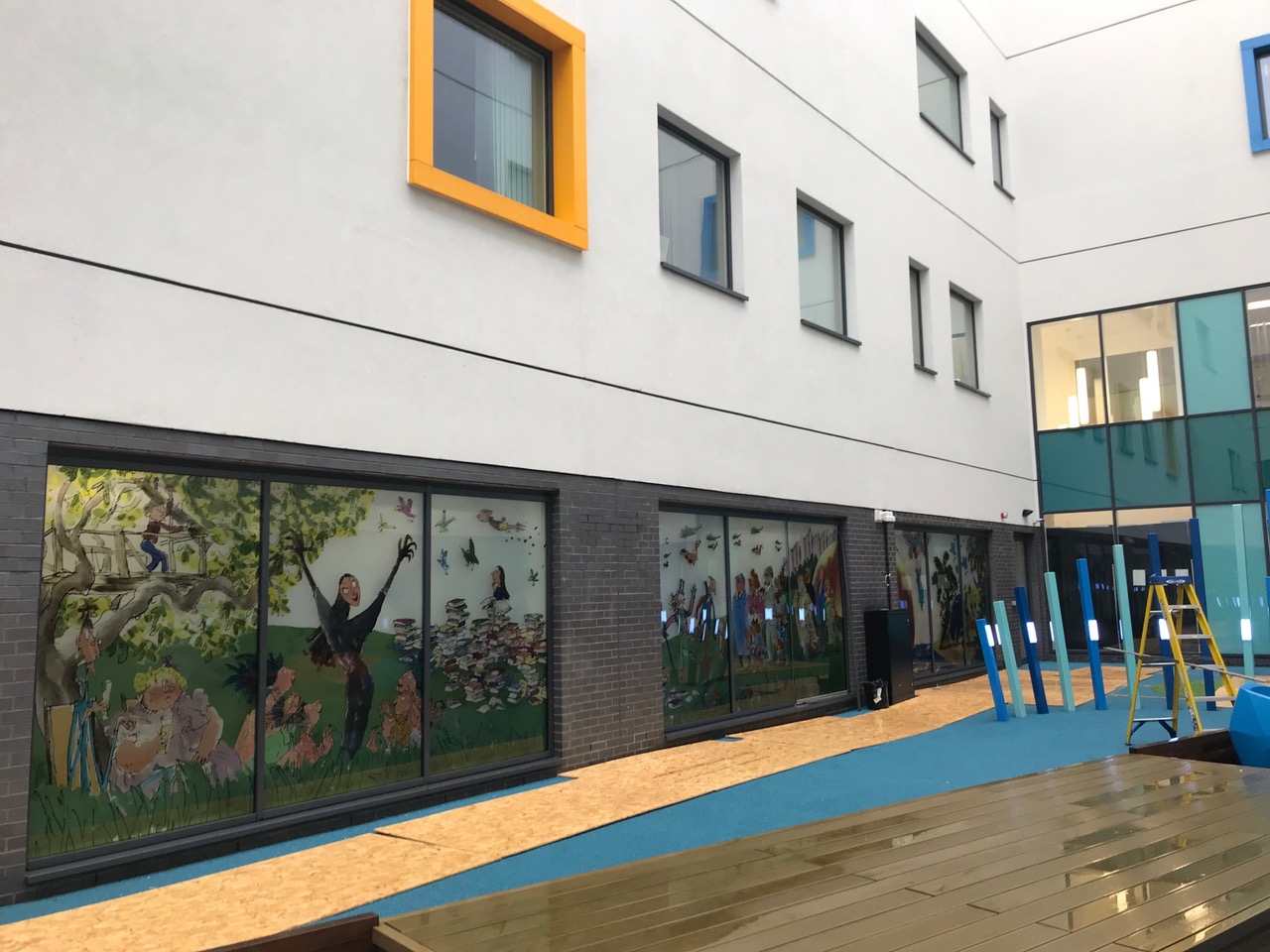
Stained glass windows unveiled at Birmingham Children's Hospital
Friday 24th January 2020
New stained glass windows featuring Quentin's illustrations from some of Roald Dahl's best-loved books were officially unveiled at Birmingham Children's Hospital on 22 January. The four windows, made up of ten stained glass panels, feature characters from books including The BFG, Matilda, The Enormous Crocodile, Esio Trot and The Witches.
Though most of Quentin's illustrations are taken from existing drawings, he contributed a few additional details to the scenarios cleverly put together by the design team at Burgess Studio. The designs were then realised onto glass panels by glass art specialist Andrew Moor in his London studio before being transported to their new home.
The finished windows adorn a corridor and reception area at the hospital’s Children’s Cancer Centre and Centre for Rare Diseases at Waterfall House in Birmingham city centre. Staff hope that the familiar characters will help put sick children more at ease as they come for treatments and check-ups.
The windows were officially unveiled by Camilla, Duchess of Cornwall, Patron of Roald Dahl's Marvellous Children's Charity which funds several specialist nurses at the hospital. Looking at one of the windows, showing Matilda sat studiously atop a pile of books, Camilla said: “Aren’t these brilliant?” She added: “It’s lovely to come to a hospital which has got such an uplifting atmosphere. Now you’ve got a little magic sprinkled on it by these windows.”
Camilla was joined at the unveiling by Felicity Dahl, widow of Roald, who had had the idea for the windows while lunching with Quentin. Mrs Dahl said: “I really wanted the magic of Roald’s much-loved characters to comfort the brave young patients and their families arriving at the hospital and provide some distraction to why they are visiting, putting their minds at ease. I am so thrilled with the magnificent windows, they are absolutely stunning.”
Mrs Dahl has a strong family link to the hospital, as her father, Professor Alphonsus d’Abreu, a pioneering thoracic and cardiac surgeon, worked at the site and would take his daughter, then a child, on patient visits each Sunday.